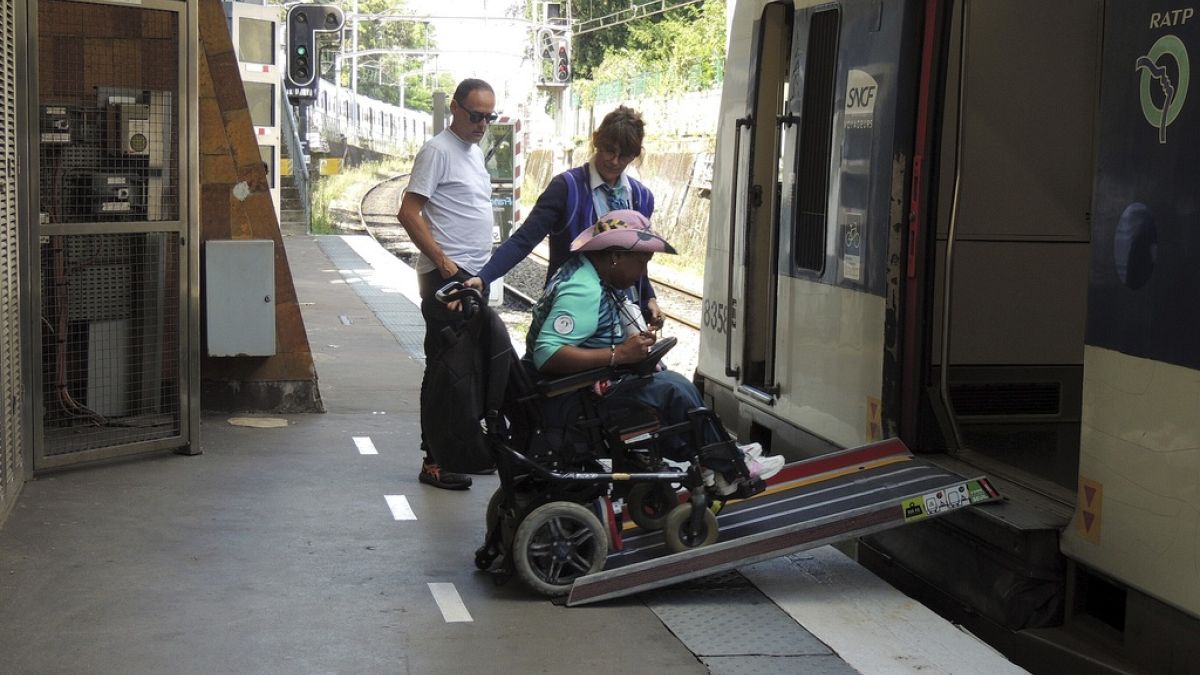The promise of improved accessibility for the Olympic and Paralympic Games in Paris has fallen short for non-profit organizations advocating for people with disabilities. Despite efforts to make navigating the city easier, many challenges remain for individuals like Franck Maille, a former para-athlete facing difficulties with public transport. The journey from the suburbs to the city centre involves multiple obstacles, such as unreliable elevators and lengthy procedures that can lead to delays and frustration. Maille highlights the physical and psychological toll of navigating Paris as a person with a disability, noting the importance of creating a truly accessible society to prevent feelings of isolation and distress.
The organizers of the Paris games pledged to make the event accessible to everyone, but Maille and others feel that more consultation with individuals affected by these accessibility issues is needed to ensure that improvements are effective. Broken elevators, impatient passengers, and physical exhaustion are just some of the challenges faced by individuals like Maille when traveling through the city. With limited fully accessible modes of transportation, navigating the Paris metro can be particularly challenging, leading many to rely on alternative options such as the tram. Even though progress has been made, there is still work to be done to create a truly inclusive environment for all individuals, especially those with disabilities.
As more than 280,000 people with disabilities are expected to attend the Paris games, there is an opportunity to create a lasting legacy of accessibility in the city. While some improvements, such as wheelchair-accessible cabs, have been made, additional efforts are necessary to enhance accessibility, particularly in the metro system. The Paris regional agency responsible for public transport operations has acknowledged the need for modernization, but significant financial investments and long-term planning will be required to make the metro more accessible. Activists like Maille are hopeful that the Paralympic Games will serve as a catalyst for broader inclusion and meaningful progress in creating a more accessible environment for individuals with disabilities in France.
Despite the challenges and barriers faced by individuals like Maille, there is hope for a post-Olympic accessibility heritage that will benefit all residents and visitors to Paris. The City of Paris acknowledges the need for continued improvements and collaboration with organizations advocating for accessibility. While significant costs and time investments are required to make the metro system more accessible, the region is committed to ensuring progress, albeit at a slower pace than desired by activists like Maille. With a growing awareness of the importance of accessibility and inclusion, there is potential for positive change that will benefit not only individuals with disabilities but the entire community in Paris.
In conclusion, the journey towards improved accessibility in Paris is ongoing, with the Paralympic Games serving as a reminder of the importance of inclusion for all individuals. While challenges remain in navigating the city for people with disabilities, there is a shared commitment among activists, city officials, and regional agencies to work towards a more accessible future. With continued advocacy and collaboration, it is hoped that Paris will become a model of inclusivity and accessibility for cities around the world, creating a lasting legacy of progress and equality for all individuals, regardless of ability.











